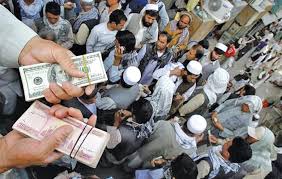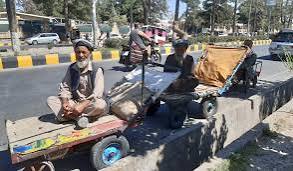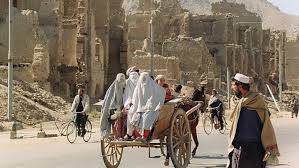Afghanistan’s economy since the Taliban came to power

Since the Taliban came to power in Afghanistan in August 2021, the country’s economy has undergone fundamental changes and challenges. These challenges have mainly occurred due to international sanctions, reduction of foreign aid, and political and social instability. Some important points about the economic situation of Afghanistan during the Taliban regime are as follows:
-
Severe reduction in international aid: Before the Taliban took over, international aid was a large part of Afghanistan’s economy. When the Taliban came to power, many countries and international organizations stopped or reduced their aid. This issue has led to a decrease in government revenue and limitations in providing public services.
-
Economic sanctions and blocking of financial reserves: Many of Afghanistan’s foreign exchange reserves, which were in international banks, were blocked after the Taliban took over. This action put a lot of pressure on the country’s economy and made it more difficult to access foreign currencies to import essential goods.

-
Increasing unemployment and poverty rate: With the reduction of economic activities and the loss of jobs related to foreign aid, the unemployment and poverty rate has greatly increased. Many families rely on humanitarian aid and people’s purchasing power has decreased.
-
** Intensification of inflation **: The increase in the price of basic goods due to import problems and lack of currency has caused high inflation. Many people have faced financial problems and their purchasing power has been greatly reduced.
-
Taxes and revenue of the Taliban government: The Taliban have tried to generate revenue by increasing taxes and controlling customs. This has caused public discontent as people complain about increased taxes and government spending. There are also reports of corruption in the Taliban’s tax system.
-
Agriculture and informal economy: In the absence of strong industry and difficult economic conditions, many people rely on agriculture and informal economy. However, drought and environmental problems have also reduced agricultural productivity.
-
Paralyzed banking system: With the disconnection of Afghan banks from the global financial system, international financial transactions have been severely limited. This has caused serious problems for commercial and import activities.
In general, Afghanistan’s economy has faced numerous crises during the Taliban regime, and the living conditions of the people have worsened, especially in the poor and vulnerable sections of the society. The economic recovery of the country depends on international dependencies, better management of domestic resources and finding ways to interact with the world.
